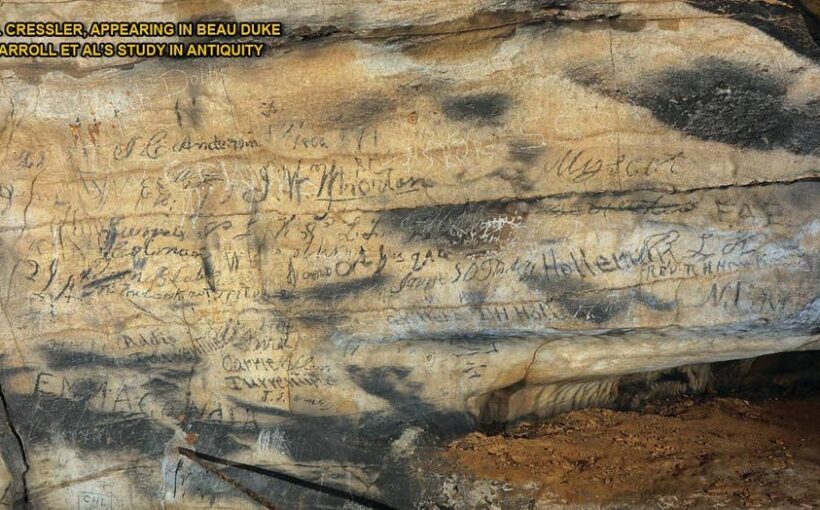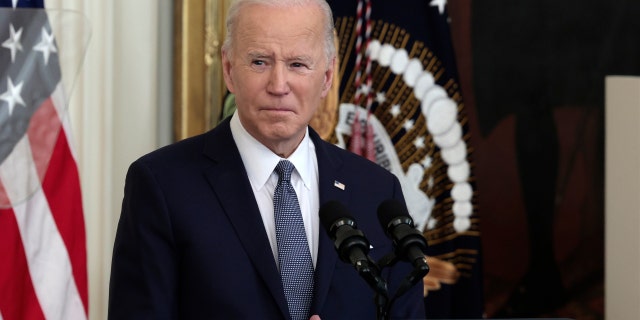Mysterious Cherokee cave scrawlings deciphered after two centuries
Ancient inscriptions inside Manitou Cave, near Fort Payne, Alabama, have finally been deciphered thanks to a team of archaeologists and Cherokee scholars. The inscriptions make reference to the leaders of a game of ‘stickball,’ the Cherokee version of lacrosse, as well as sensitive religious matters. They offer a fascinating glimpse into secluded sacred ceremonies that were carried out at a time of crisis for the Cherokee.
The Cherokee Nation is preparing the last leg of its campaign to have a delegate to the House of Representatives ratified into office – a process over a century in the making.
The Cherokee Nation announced in 2019 that Principal Chief Chuck Hoskin Jr. had activated a clause in the 1835 Treaty of New Echota – a pact made with the contemporary U.S. government – that granted the Cherokee Nation’s chief the authority to appoint a delegate to the House of Representatives with cooperation from Congress. Hoskin appointed long-time Cherokee liaison for government affairs Kimberly Teehee to the position, who served in the White House under former President Obama.
“The symbolism of Kim being seated is so powerful,” Hoskin said.
Progress on the legislation was slow to start, due to the unprecedented nature of the appointment – the delegate would fit somewhere between observer status and full privileges of House representatives, most likely an active representative in the House without the ability to vote on the floor. Despite these expectations, the final form of the position has yet to be determined as Teehee works with congressional committees on the legal outline.
Principal Chief Chuck Hoskin Jr.
( )
Cherokee Freedmen controversy
The Treaty of New Echota served as the legal basis for the removal of American Indians from regions of Georgia, eventually leading to the infamous Trail of Tears that decimated the tribe. The document was originally signed by a minority faction of the Cherokee people, without the approval of the chief nor the tribe’s council. However, after a series of revalidation agreements and negotiations, the 1835 treaty is recognized as valid and binding by the both the modern Cherokee Nation and the U.S. government.
The potential for enforcement of the delegate clause first came to light during the resolution of the Cherokee Freedmen controversy – a decades-long legal battle to acknowledge Cherokee Nation citizenship for the descendants of slaves owned by past generations of Cherokee.
Generally, citizenship in the nation is determined by lineage traceable to the Dawes Commission Rolls, a registry that outlined the identities and population of the tribe. However, because slaves were not included on the registry, they were gradually phased out of the nation. Despite challenges, the Cherokee Freedmen began regaining full citizenship in 2017.
Throughout the Cherokee Freedmen controversy, officials in the nation extensively studied a trove of historical documents, treaties and laws between the nation and the U.S. government. This renewed interest in the dormant delegate clause, which Hoskin decided to finally act on. He surprised Teehee with his decision – she previously led a variety of U.S. government relations for the tribe and was unaware of the chief’s plan of action.
New Cherokee ‘Golden Period’
Hoskin told Fox News Digital that while the desire for representation has always existed within the Cherokee Nation, the long broken and impoverished tribe did not have the resources, connections, finances or political power to even attempt a push for the treaty clause to be recognized.
Today, the Cherokee Nation is entering a “golden period” and the time is right for the tribe to request the U.S. government make good on the centuries-old promise, he said.
“The Cherokee Nation had to get into a position of relative strength, whether measured economically or politically,” the chief told Fox News Digital. “If you look back from August 2019 when I announced Kim Teehee would be appointed, there is a long period of time – generations – during which the Cherokee nation, for a variety of federal Indian policies, had been suppressed, nearly extinguished. And we really just didn’t have a practical opportunity to assert this right.”
“Removal, obviously, was a tremendous trauma to our people in terms of loss of life and destruction of our institutions. Rebuilding took a period of time,” Hoskin added.
Cherokee Nation intends to use the new delegation to push for its own needs but also see itself as a foot in the door for all American Indians to gain a larger voice.
Hoskin, who was in Washington, D.C., this week for a White House event celebrating the successes of President Biden’s Violence Against Women Act, stressed that there is no bad blood between the U.S. government and the Cherokee Nation on the issue – lawmakers they have met with have been supportive of the Cherokee delegation initiative and helped them along the way.
Bipartisan cooperation
By cooperating with the federal government in decades past, Cherokee leadership staff have been able to make huge strides for damaged communities.
Hoskin and Teehee spoke positively on the administrations of former Presidents Trump and Obama, saying that in recent years the White House has done much to help the Cherokee Nation in its reconstruction efforts since the tribe was almost wiped out in the 19th century.
They praised the Biden administration with unique enthusiasm, however, saying that the president has done more to collaborate with Cherokee officials than any administration in recent decades.
President Biden gives remarks at a Black History Month celebration event in the East Room of the White House on Feb. 28, 2022, in Washington, D.C.
(Anna Moneymaker/Getty Images)
Teehee praised the “historic strides” made under the Biden administration as well as the “historic administration appointments” under Biden and Obama, adding that “so many glass ceilings have been shattered.” Teehee and Hoskins also praised the Trump administration for having helped “[accomplish] 100%” of their “parochial needs.”
Now, with the Cherokee delegation becoming more and more feasible, the tribe is optimistic about the future and quick to tout its successes combating social issues such as domestic violence, alcoholism and diabetes – problems that have historically held the nation back.
Starlink mobile devices have connected the impoverished areas of American Indian country with affordable and high-speed internet access for the first time, and the pair point to “how Indian country has used pandemic funding” to effectively address a lack of resources such as “food deserts” and unstable health care resources. These advancements of infrastructure and social well-being are the hallmarks of the “golden era” Hoskins described.
“Over time, I think we’re all regaining strength,” the chief remarked.
“Failing Indian country is a bipartisan effort,” Hoskin said at one point in the interview. But the Cherokee leader was just as passionate for the help that has come from both sides of the aisle.
“When we have had the wisdom to work with our friends and neighbors, there has been prosperity,” he told Fox News Digital.
Source: Read Full Article



